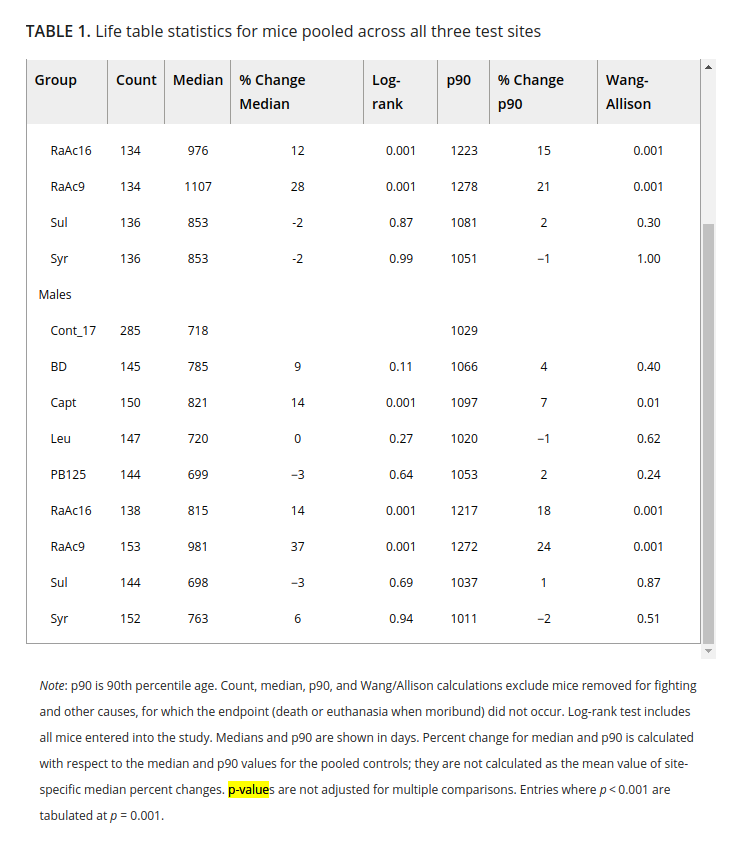Will 1,3-butanediol significantly extend the lifespan of UM-HET3 mice tested by the NIA’s Interventions Testing Program? (Cohort 13: C2017)
Plus
10
Ṁ2352032
32%
chance
1D
1W
1M
ALL
...treatments that can decelerate the rate of aging are the only available path to significantly increase human lifespan going forward. Before drugs and treatments can be considered for larger clinical studies in humans, pilot trials in rodents must be performed as a necessary prerequisite. This is why the National Institute on Aging established the Interventions Testing Program which “is a multi-institutional study investigating treatments with the potential to extend lifespan and delay disease and dysfunction in mice”.
So far it is the largest systematic effort to test potentially life-extending compounds in mice that has been performed. This is an attempt to give the biogerontology community, interested experts and laypeople an opportunity to predict outcomes of this important experiment.
See also: http://biogerontolgy.blogspot.com/2022/02/a-prediction-market-for-nias-mouse.html
This question is managed and resolved by Manifold.
Get 1,000and
1,000and 3.00
3.00
Related questions
Related questions
Will Captopril significantly extend the lifespan of UM-HET3 mice tested by the NIA’s Interventions Testing Program? (Cohort 13: C2017)
32% chance
What will be the next compound produced and tested by the ITP that will be shown to have a statistically significant effect on both median and 90th percentile lifespan?
Will NR or NMN supplementation by proven to promote longevity-related outcomes in healthy adults by 2025?
15% chance
Will Aubrey de Grey's 2022 Robust Mouse Rejuvenation Project "succeed" in its aims of finding an intervention that increases both mean and maximum lifespan of mice by at least 12 months?
21% chance
What will be the next compound tested by the Interventions Testing Program (ITP) shown to have a statistically significant effect on lifespan?
Will a study show that the combination of parabiosis + genetic reprogramming will improve lifespan more than either intervention alone by 2035?
43% chance
Will a laboratory mouse reach 8 years of age by the end of 2030?
19% chance
By 2030, will any treatment be shown to increase human lifespan in a randomized controlled trial?
Will a study performed by the Dog Aging Project show a statistically significant effect of rapamycin on lifespan extension between control groups and a treatment group?
73% chance
If a treatment is shown to increase human lifespan in a randomized controlled trial by 2030, what was the treatment?
